Note: This post may contain affiliate links which means if you click on a link and purchase an item, we will receive an affiliate commission at no extra cost to you.
This is the latest interview in a series featuring digital nomads talking about their lives and lessons (click here if you want to be interviewed). The goal is to help demystify the process of making money online, wandering the world, and living an unconventional life!
Six years ago Rachel left her established life in D.C. to explore the world. Her remote career is unique and we love her advice to people thinking about nomading.
Thank you for sharing your story, Rachel!
Table of Contents
Introduce yourself! 🙂 Who are you? What do you do for work? And what is your nomadic story?
My name is Rachel Coleman. I am an independent education consultant (IEC) who for 6+ years has worked virtually with high school students throughout the college application process as my partner and I explore this amazing world we live in. Although we’re currently living in Portland, OR (riding out the global pandemic), we tend to spend 2-4 months in each new country we visit and only one month in the U.S. each year to see family.
A bit of background: I graduated from Stanford in 2014 with a degree in Comparative Literature and then worked as a Legislative Correspondent in the U.S. Senate for a year. But my love of history, literature, and adventure could not be quenched in the halls of Congress. So I quit my job in 2015 to become a digital nomad and haven’t looked back since.
The early days were spent building my online IEC business, housesitting via sites like TrustedHousesitters, and living on a shoestring budget as we explored ancient ruins, new cultures, and immersive museums. Now, six years later, business is booming, and we’re far more likely to rent an apartment for a few months than let available housesits dictate our plans.
I’ve traveled to many places short-term but longer-term I’ve lived in Bulgaria, Italy, France, the US, Canada, Georgia (the country), Croatia, Spain, Cyprus, Kazakhstan, and Uzbekistan.
To me, being a digital nomad is a fundamental part of my identity, in the same way that being my own boss and running my own company is integral to my character: they both represent how I value my self-determination, my independence, and my willingness to walk untrodden paths.
Please tell us your detailed story of how you got into your line of work and how you turned it into a remote career.
I had worked consistently as a writing tutor throughout high school and college, culminating in leading Stanford’s Hume Center for Writing and Speaking my senior year. When I quit my job in the Senate, I also rediscovered my love for working with students on their writing and specifically empowering students to be effective communicators in the college application process. After completing the requisite education to prepare myself to become an IEC – I took a one-year course to earn my college counseling certification from UCLA – I chose to start my business 100% virtually.
I meet with all my students and families via Zoom or Skype and therefore can offer my services to students living anywhere across the U.S. or the world. Although I made this decision six years ago, the pandemic’s recent impact has made more and more people aware of just how much can be accomplished virtually, and the advantages of skipping long commutes in traffic, or setting up an alternative work schedule to the traditional nine-to-five commitment.
What inspired you to start nomading? And how has nomading changed your perspective on life?
Working in an office inevitably can start to feel like a prison. Even as I found myself enjoying the company of my co-workers or enjoying the issue areas I was working on, I couldn’t help but look to the future and wonder: what is the lifetime opportunity cost of two weeks of vacation a year?
This question haunted me.
And the feeling was compounded by the fact that I know humans are habit-forming creatures, evolved to acclimate to new environments, conform to traditions, and feel safe within tried and true structures. So not only did I wonder about what my future held, but I also wondered: will I eventually become so comfortable with this suburban lifestyle, so inured to the daily commute to work and the patterns of D.C. work that I stop caring about what else is out there?
I felt, at age 22, I was too young to take that chance.
Now, six years into the lifestyle, I could not be happier with the results of taking this risk and embracing a new way of organizing my life! Nomading has confirmed for me how similar humans are across cultures, social classes, or even religious communities.
For each new country I visit, I try to read (at least) one fiction and one non-fiction literary work from that country to start the immersion process immediately. Pairing my reading with a deep desire to learn about a culture’s history, politics, and future development goals has made me increasingly aware of how interconnected our world is. And I find it a true comfort to know that, wherever my travels take me, I will find fellow humans who share the same values of family, hospitality, laughter, and curiosity.
What advice would you give to someone who’s thinking about nomading?
For my future digital nomad peers, let me start with a few words of encouragement:
I found that the financial cost of becoming a digital nomad is actually one with relatively easy barriers to overcome. I had previously considered travel to be a kind of luxurious pursuit, accessible only to those who were well-off. But I was pleasantly surprised.
The cost of living in many countries allows one not only to earn a salary virtually and travel in a financially sustainable way but even to save money long-term. It can actually cost much more to work in an American city or live in a typical American suburb in many cases. This type of “geographic arbitrage” gives people who have embarked on this lifestyle tremendous freedom to dictate their own futures and customize their spending habits.
I’d also add that the digital nomad mentality teaches one to live with less and value things other than material possessions. This, too, can play a cost-saving role.
Now a few words of caution, consideration:
That being said, it’s crucial to not live beyond your means, even before deciding on this kind of lifestyle. Saving, limiting excessive spending, and working towards paying off any debt or financial obligations will give you more freedom and room for error when you do eventually decide to try out the lifestyle, thus helping you avoid early stumbling blocks and being forced to – rather than choosing to – return to a location-dependent life.
And to those who struggle with meeting people: I made an effort to take part in whatever local community I found myself in. Since our “slow travel” approach allows us to spend up to 3-6 months in a new place, we’re able to delve deeper. Throughout this time, it’s key not to simply act like a tourist. Instead, I try to go to events locally, including lectures given by a local professor on a country’s history and culture or various food and wine festivals that take place seasonally throughout the year.
I also try to find the local English-speaking or expat community, which has a ton of great information and resources and events like quiz nights, book clubs, etc.
Finally: trust yourself. While you should still be able to take feedback and constructive criticism from those around you, the naysayers can get in the way – you need to stick to your guns and be tenacious in pursuing the goals you have chosen, however unconventional they may be.
What is one of your favorite travel experiences?
It was a hot day in Tbilisi, Georgia. My partner and I were scouting for historic examples of the city’s indescribable balcony-centric architecture (see photo) when we inadvertently discovered an absolutely beautiful courtyard. Women were hustling past us carrying buckets of water for cleaning the stones, young children were running along the balconies – and just tucked in the back of the courtyard across from us was the most lovely looking cafe.
The single outdoor table was illuminated by a ray of sunshine. A vase with flowers in it beckoned. There was no question: we had to stop, drink a coffee, and just appreciate the joy of this moment.
But after we sat down, I realized that there was no one serving us. Alas, the cafe was closed. Nevertheless, we sat down just to enjoy a quick rest. Finally, one of the women came by, and we asked if the “cafe” was open. Things started happening. The kindly woman turned around and started yelling up to the fourth-floor balcony. A boy raced out, ran down the stairs, and took off, exiting the courtyard on a mission, returning soon with a set of keys to the closed “cafe.”
That woman then took the keys and opened the cafe door. Peering inside, it was at this exact moment when I realized: oh dear, this is not a “cafe” at all, this is a person’s house! Had the woman just retrieved her neighbor’s keys to serve us coffee? Should we accept now that we’re aware of our faux pas? Suddenly, the whole family was out, serving us coffee, tea, and milk, and asking us if we needed anything else. There was no way of saying no, and no way of paying. This wasn’t a cafe – just Georgian hospitality on a random stranger’s front porch.
What are the 2-3 favorite places where you’ve lived/traveled to and why?
Georgia: I lived in the country of Georgia for three months in 2019. We chose it (and loved it) because it was home to an incredibly unique culture, people, and language that few people in the U.S. knew about. It was also a blend of East and West among the backdrop of the spectacularly scenic Caucuses, which were ideal for hiking.
Bulgaria: My partner is originally from here, so I was able to get a unique insight into the culture and family life. I found that it has a fascinating and ancient history and is also a well-located hub – a sort of “crossroads” – from which I could access various other countries, both East and West.
What is unique about how you travel, and what advice do you have for someone who wants to travel with a similar style?
I am a big believer in “slow travel,” i.e., I try to live for more than two months in any new location. This gives me plenty of opportunities to truly get to know a place and its people and culture. The experience is completely different from just “passing through” and allows for a level of immersion that simply isn’t possible on a shorter time frame, no matter how many bucket list items, must-see sights, or top ten places you think you can cross off your list.
Sometimes, I’ve applied these principles to transportation as well, trying to reduce the number of flights I use and instead traveling by bus or train “slowly” across entire continents to get to where I need to go. (Taking trains from Spain to China, including the Trans-Siberian from Moscow to Beijing, was one of my all-time favorite travel experiences).
If you’re a woman, a person of color, and/or LGBTQ, what should other people who identify similarly (and who haven’t traveled much) know about traveling/nomading?
As a woman, I do try to be aware of safety considerations while traveling. For example:
- I research a country’s standards of modesty / dressing so I can be respectful of each culture.
- I choose not to walk alone out late in a new city (the same rules I have for U.S. cities, for that matter) or put myself in situations where I am the only woman present.
- I do not hitchhike alone or go home with new friends I’ve made. Instead, as I do enjoy developing new friendships, I always make the locations a public park or local cafe.
But honestly, the rules for woman travelers are essentially the same as for women in my home country, the U.S. Yes, there is a need to be cautious and alert in any new environment or new city, but traveling is not inherently more dangerous (in fact, there are 136 countries that have lower per capita murder rates than the U.S., so you could actually argue that I’m safer when I travel).
What does a day in your work life look like? Paint a picture for us :).
Overall, I tend to work with 10-15 high schoolers each year, and each student will receive approximately 60-90 hours of college counseling. Since most application deadlines are in the Fall and Winter, my work tends to be heavily seasonal, with the busiest period being August through January.
For me, a “day in the life” would include:
Morning: Staying up to date with trends in U.S. college admissions through webinars from HECA (Higher Education Consultants Association), where I can learn about new programs directly from admissions officers.
Afternoon: Conducting virtual meetings over Zoom or Skype with my students, who are in Grades 9-12 and on various parts of their admissions journey. For example, I could first discuss how to assess financial aid awards with one student, while the next might need my help building their architecture portfolio during the summer.
Evening: After all my meetings, I tend to spend several hours giving feedback on students’ essays, including their resumes, college admissions essays, English papers, scholarship essays, waitlist emails, and other application essays.
What digital tools do you use for your work?
I meet with my students primarily via Zoom or other video conferencing tools like Skype or Google Hangouts and use Calendly to schedule my virtual meetings.
For someone interested in getting into your field of work, what’s the best advice you would give? And what books, podcasts, thought leaders, or other learning resources do you recommend?
First, I recommend that people interested in becoming an IEC look into a College Counseling Certificate program at UCLA or UCI (the program is 100% virtual). Then, become a member of either NACAC, HECA, or IECA, and start learning from the existing IECs in this community by attending webinars, conferences, joining an existing college counseling practice (there are so many groups who need additional counselors because the demand is too high right now!), and finally subscribing to great magazines like Inside Higher Ed and The Chronicle of Higher Education to stay up to date on trends in the admissions landscape.
Tell us about your content creation journey, and share some of your favorite content that people should check out!
My most recent blog post on assessing whether a college could go out of business details four resources families can use to determine a college’s financial health, and I’ve found it particularly useful in this post-pandemic economy when some colleges are more vulnerable than in previous years.
What small change has made a big difference in your life?
Eliminating the email notifications on my phone has helped me have better mental health and is symbolic of how I try to keep my work and my non-work times separate, which can be tricky as a digital nomad. Yes, I still check my email at least five times a day (I’m only human), but now I try to do it intentionally, setting aside work hours dedicated to answering emails, working with students, editing essays, etc. And when I’m not working at my computer, well, now my phone doesn’t keep reminding me of the future tasks that lie ahead.
If you only had a few minutes to live, what are the most important life lessons you would share with the world?
- Be humble about what you know. The more I travel, the more I realize how much there is to learn, experience, and question. I’ve changed my mind constantly about big things and small things, and that’s the most freeing revelation that I hope others get to experience at least once in their lives.
- Ask questions. People around the world tend to love to share their experiences with the younger generations, and learning from firsthand narratives can be even better than learning from books.
If you’re passionate about FIRE (Financial Independence Early Retirement), please share how this has impacted your life, what your journey has been like, and what other people should know about FIRE!
I am extremely passionate about FIRE, specifically how digital nomad living (and the geographic arbitrage that it can facilitate) can be a mechanism to FIRE earlier. For example, when my partner and I were on a tight budget, we did not rent an apartment for several years. Instead, we would house sit for months at a time in different locations throughout Europe (where the cost of food is also low). This helped us keep saving diligently even though I was transitioning from being an employee to being self-employed and starting a business.
We’ve found all sorts of tricks along the way, including learning to drive manual transmission to secure 30 cent-per-day car rentals with lesser-known car rental companies or filling up sparkling water for 5 cents at public water fountains in Italy.
What do you travel with that you couldn’t imagine traveling without?
Books. Black Tea. Questions. (And a lifelong partner to ask them to)
Everything else is optional.
That being said, investing in something like the Skyroam Solis is helpful when wifi is patchy across countries.
What’s your favorite book and why?
There are two many to name! But I fell in love with The Count of Monte Cristo at a young age, and that story of revenge, romance, retribution, redemption, and revelation has just stayed with me.
Tell us about a deep passion of yours! What has your journey been like, and what advice/resources would you recommend for someone interested in learning more about this topic?
I am a huge fan of Roman History. I cannot recommend enough the “History of Rome” podcast by Mike Duncan. There are too many books on this topic to list, but to me, the best part would be reading one of the legions of books while sitting on a fallen column somewhere in the former Roman Empire.
How can people learn more about you and your work?
People can work with me at collegeessayeditor.com.


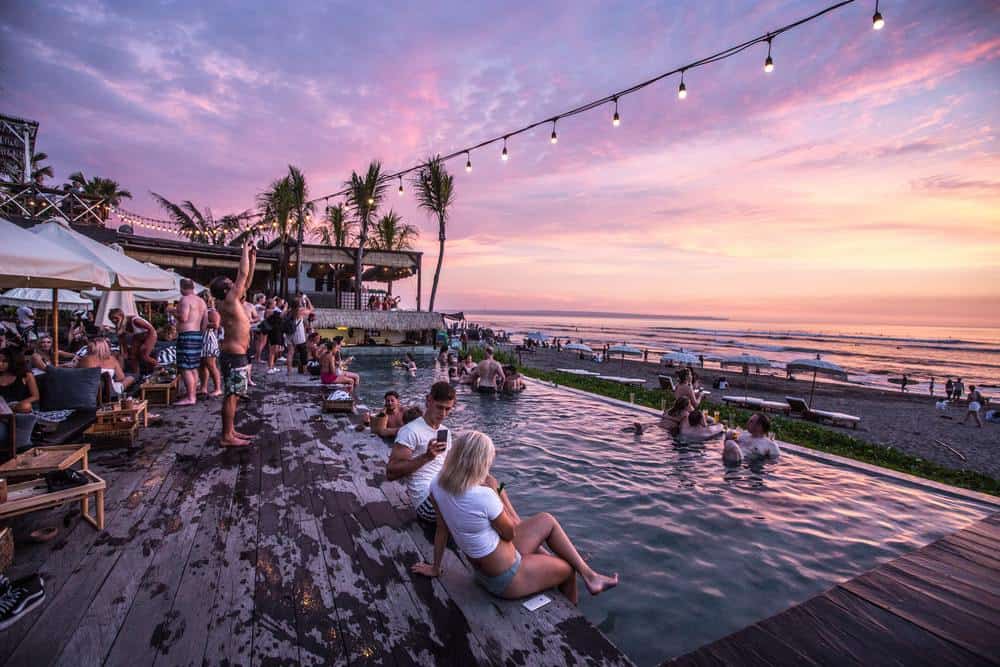
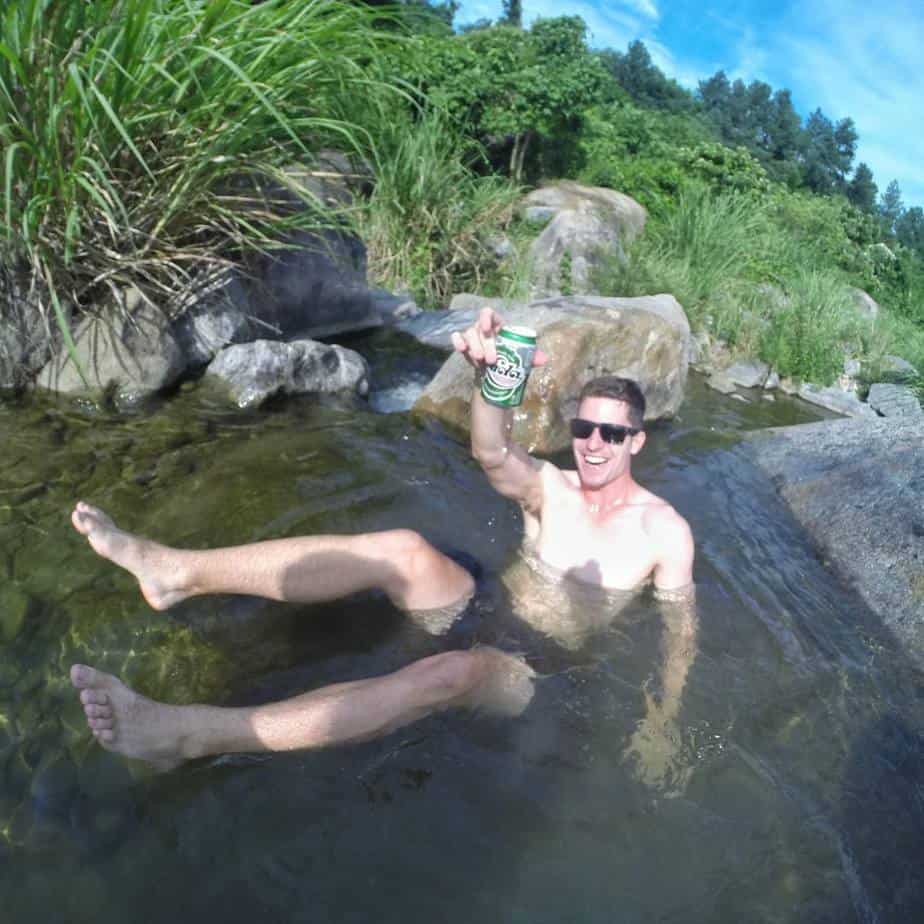
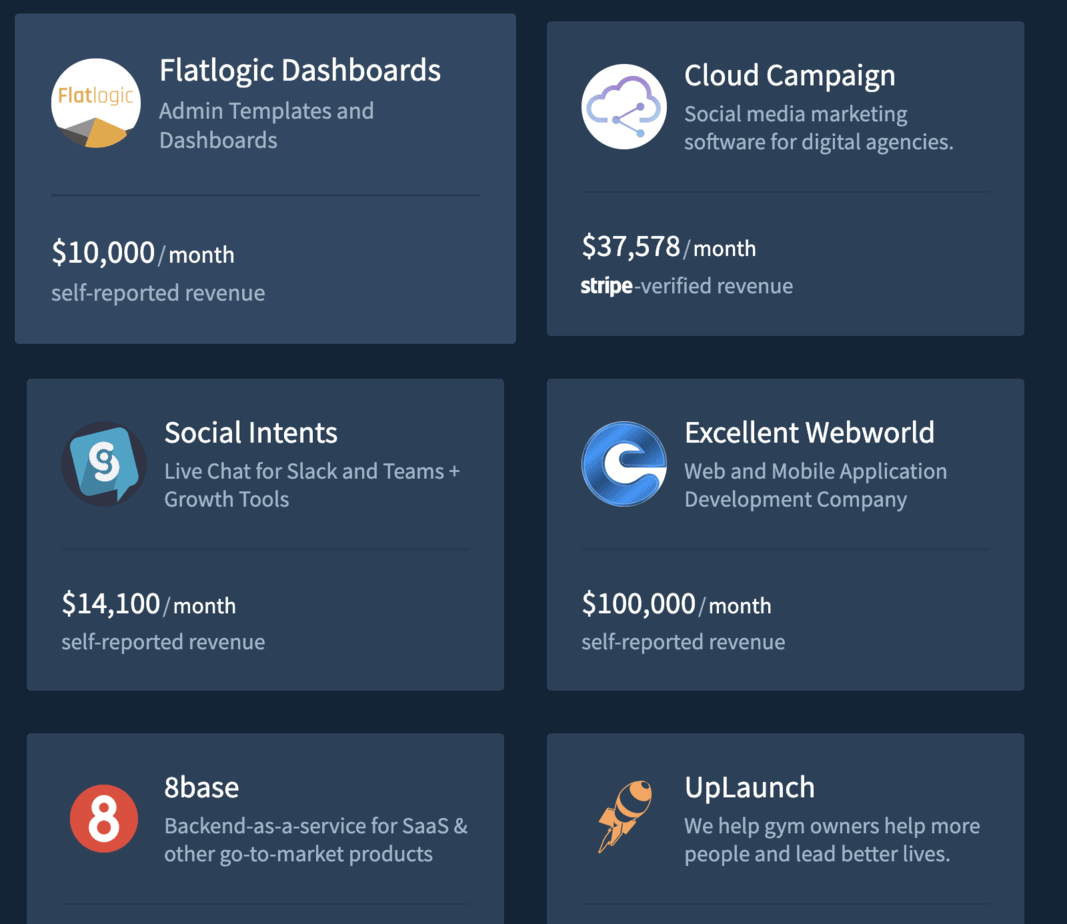
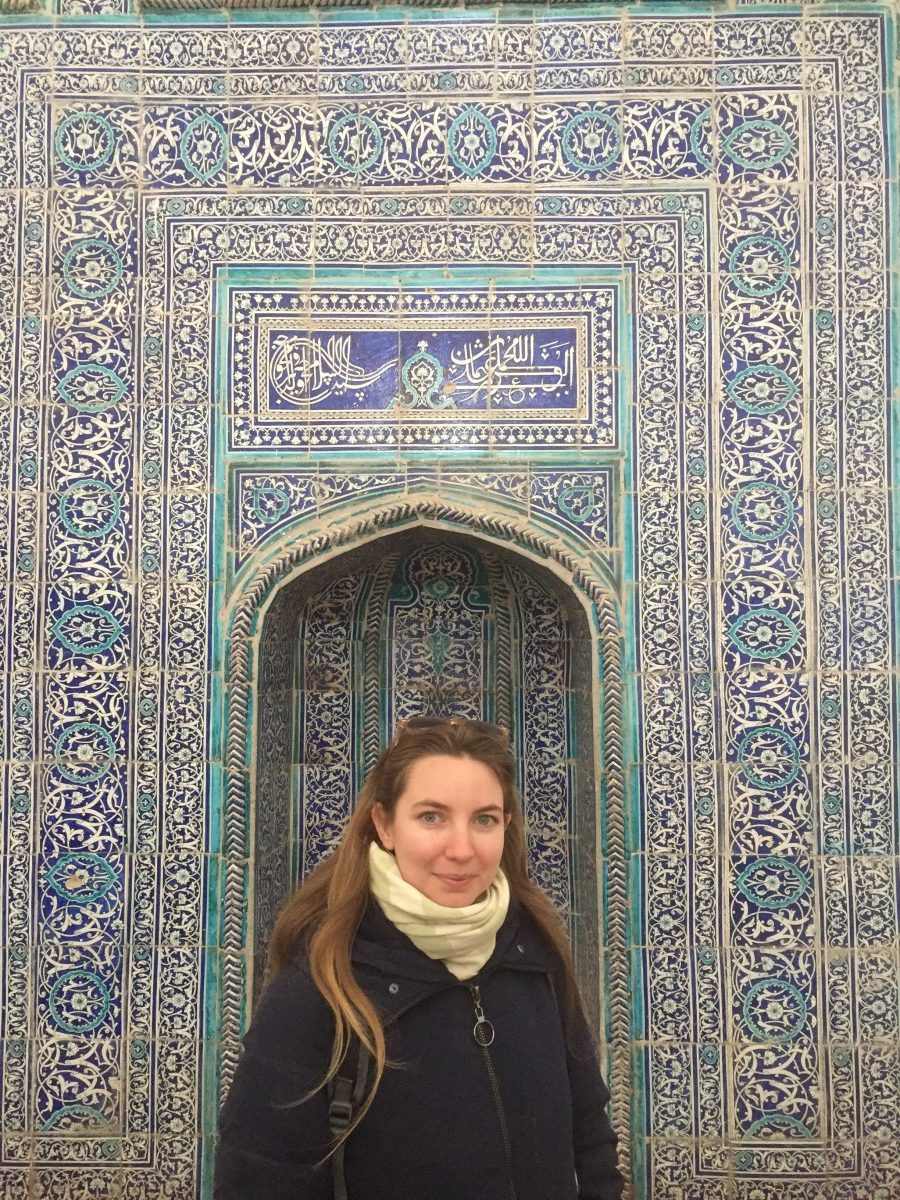

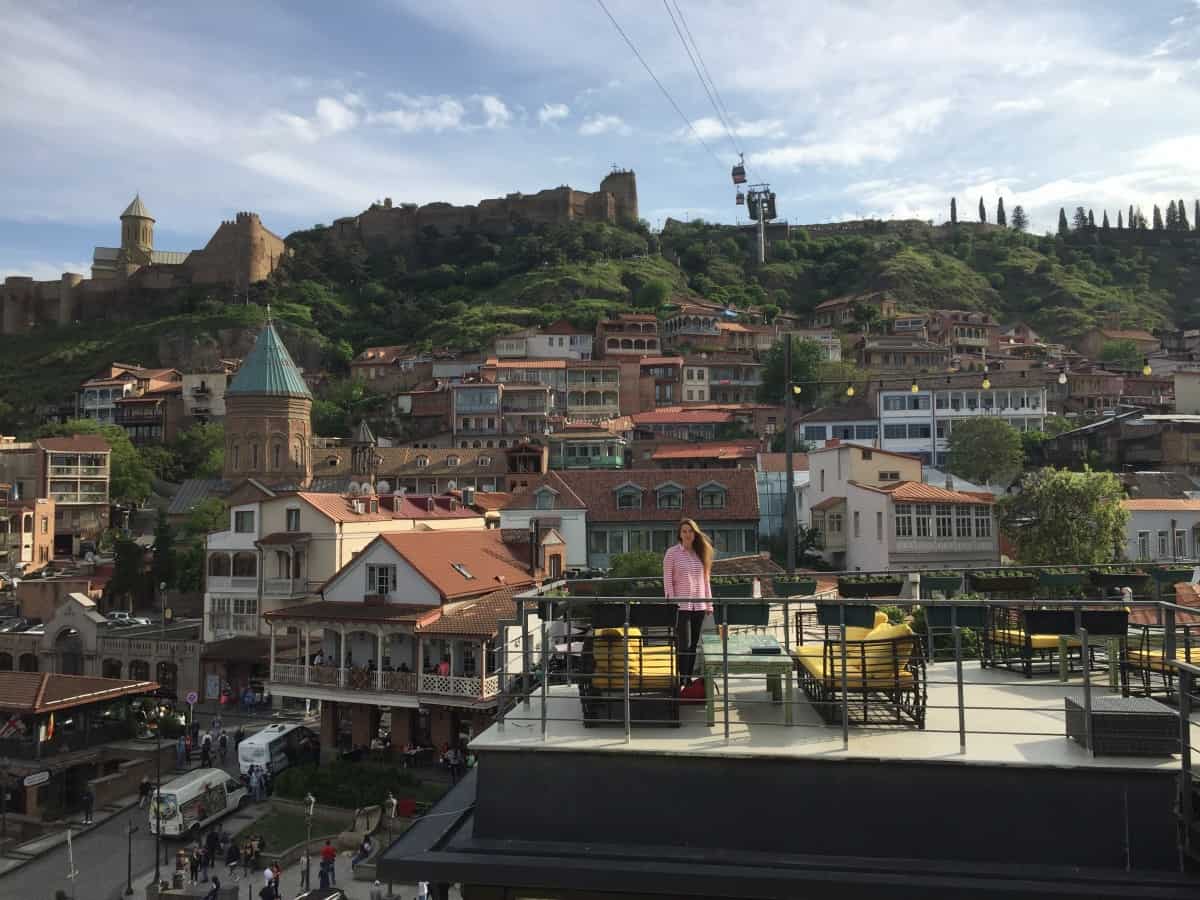
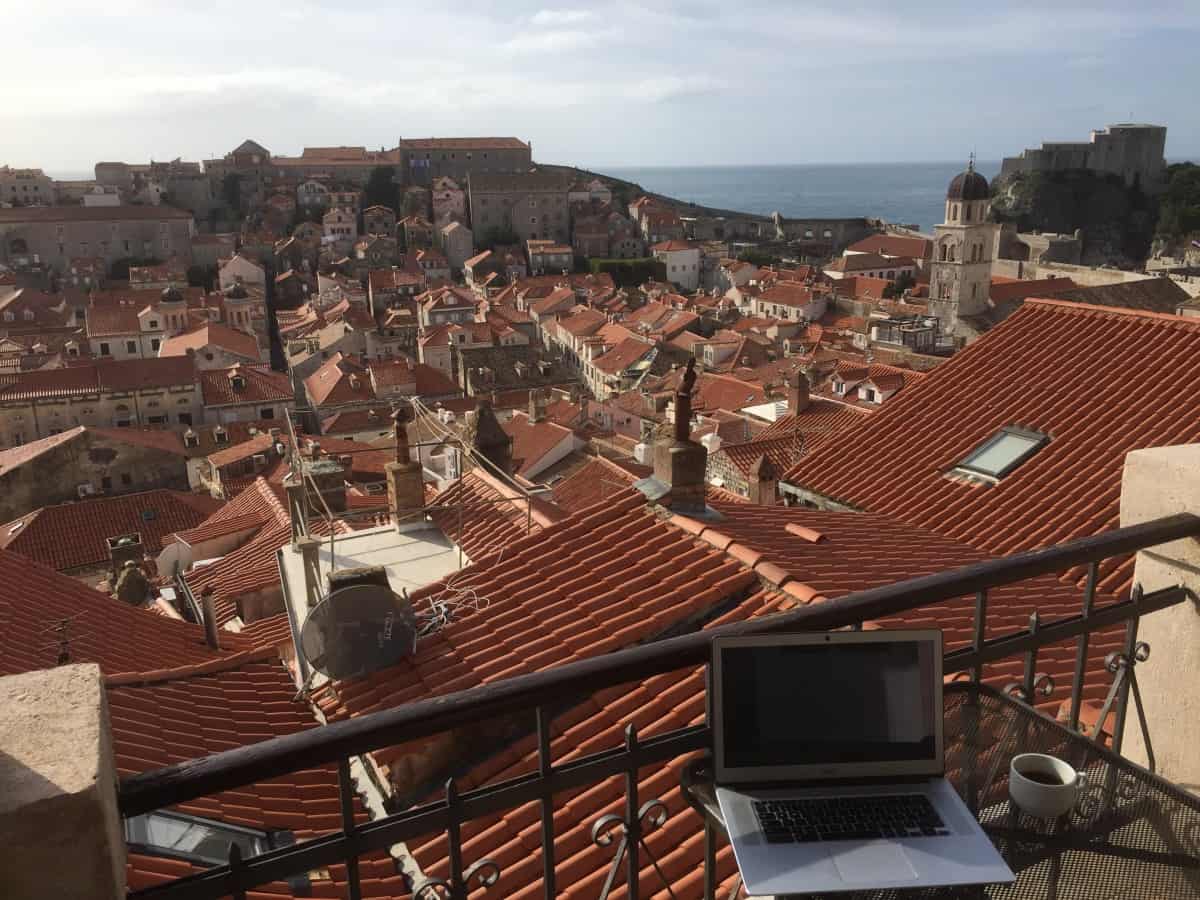
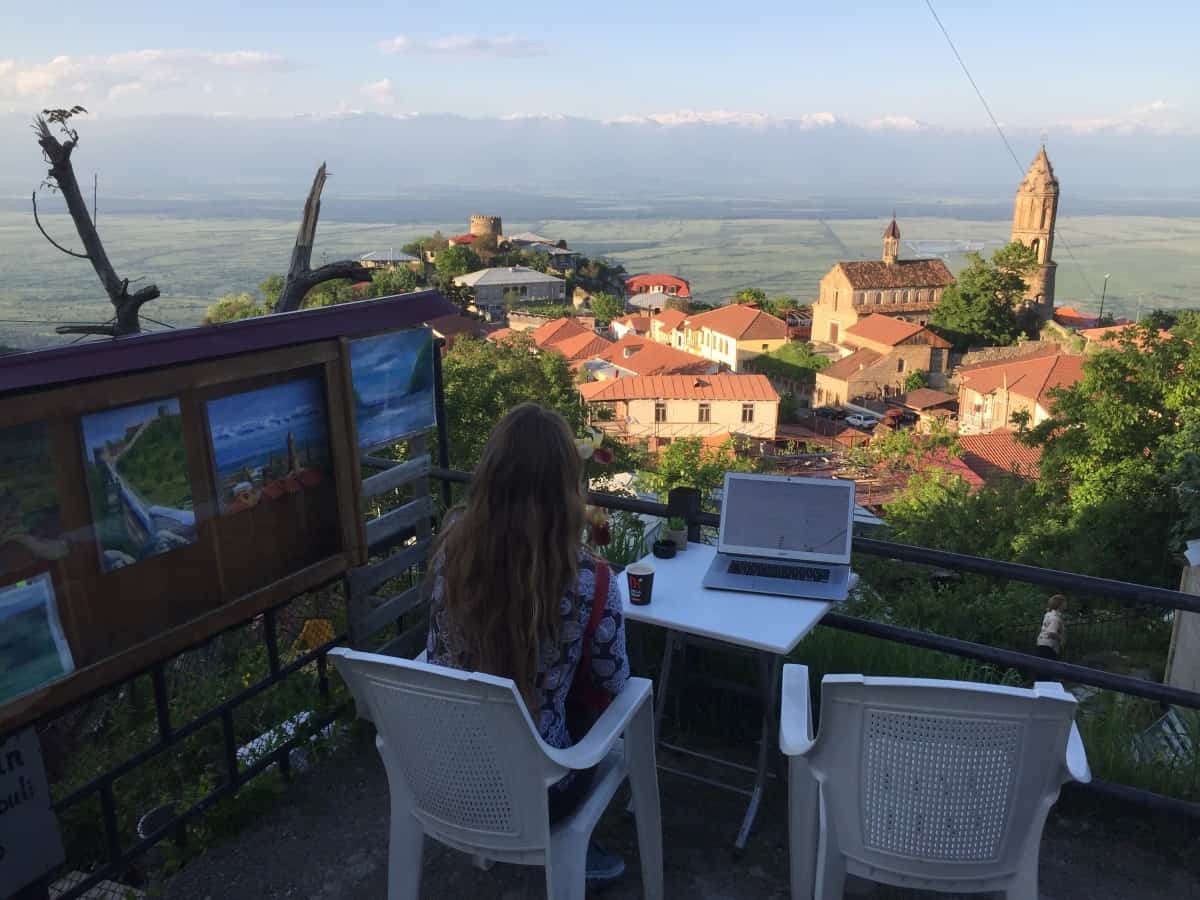
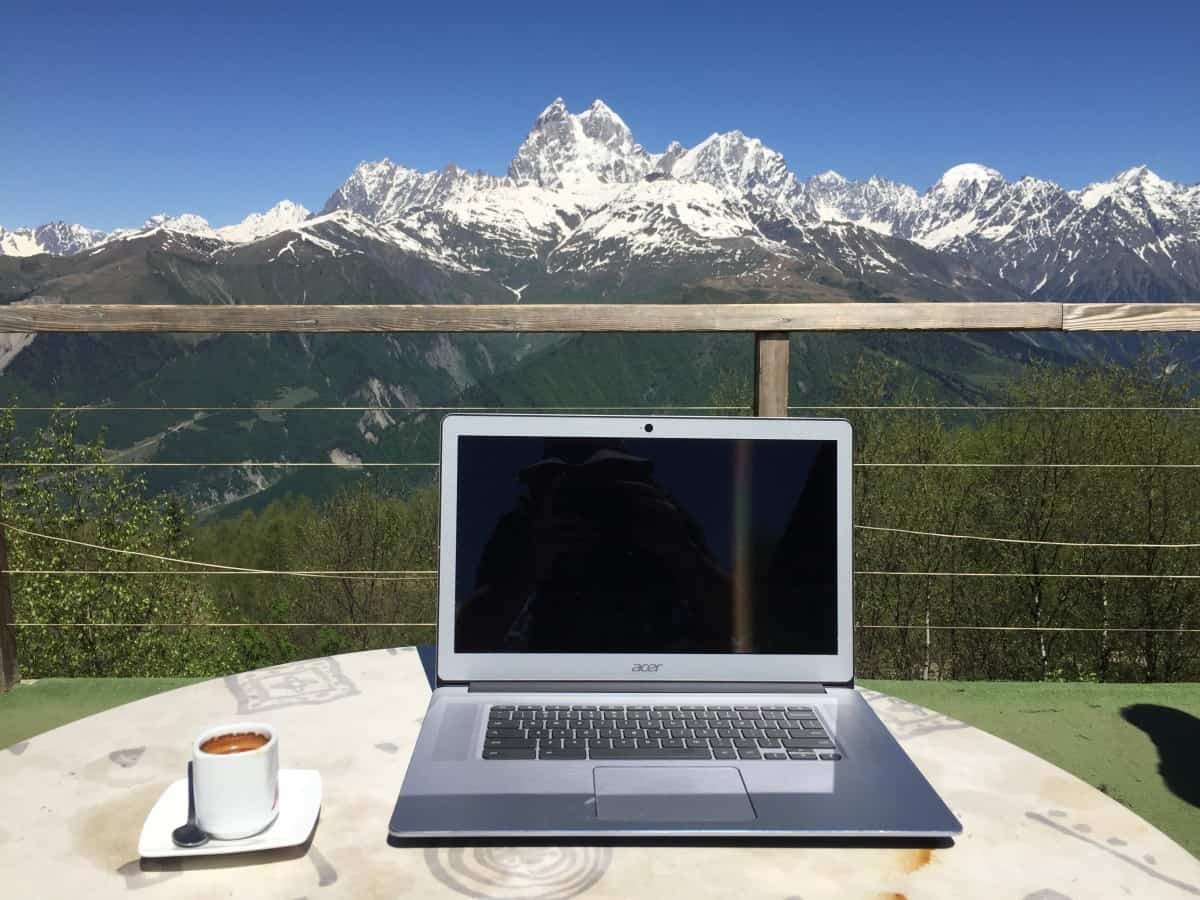
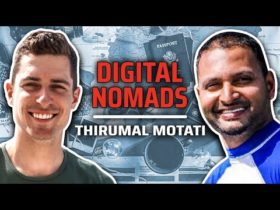
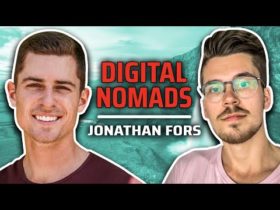
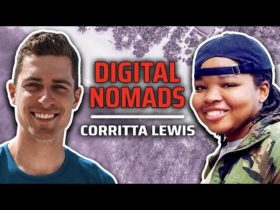
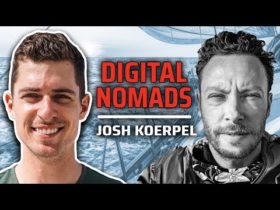
Leave a Reply
View Comments